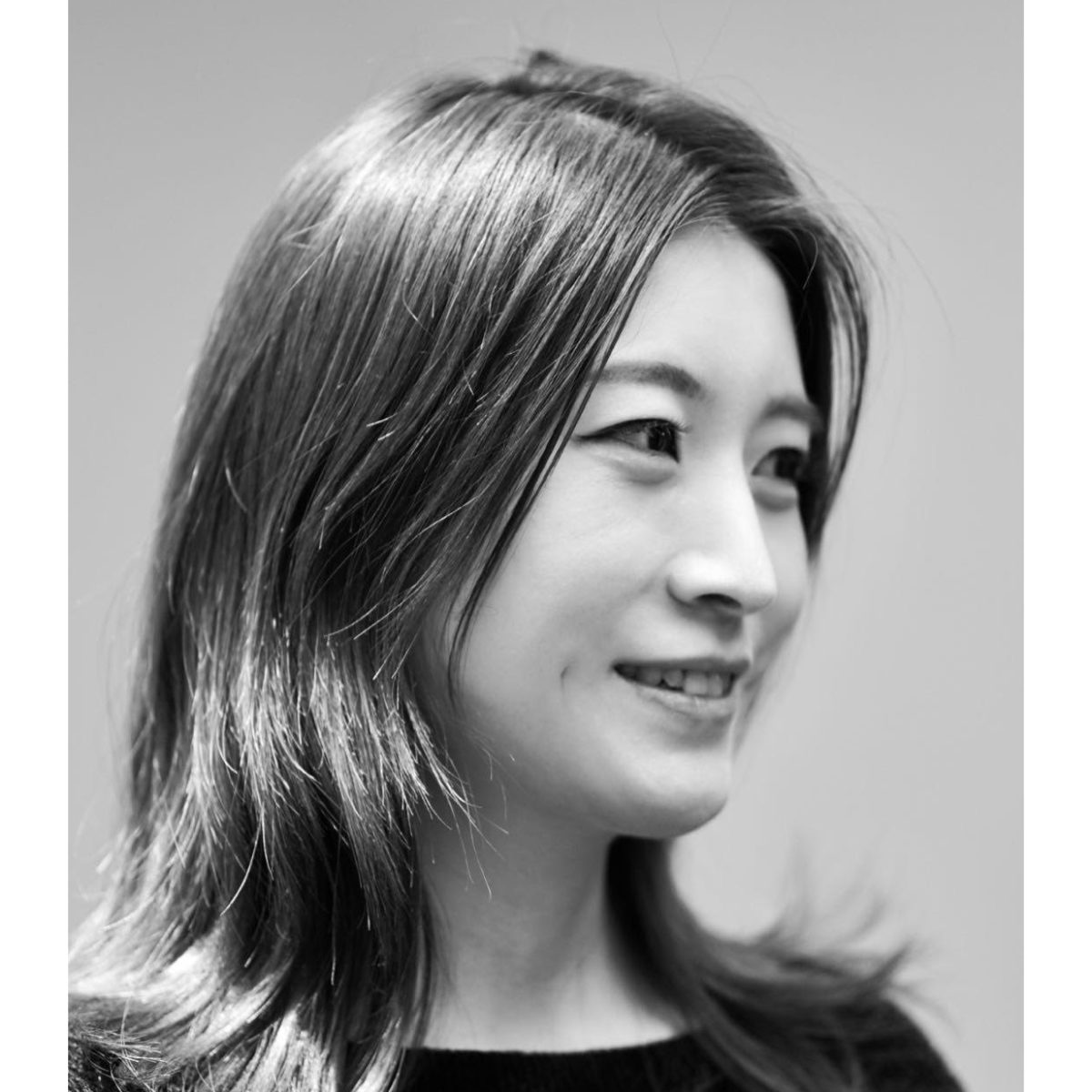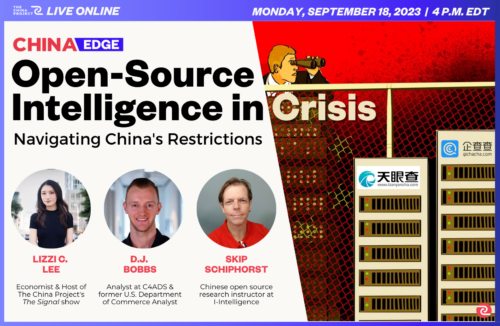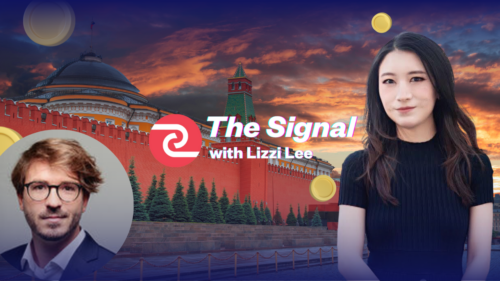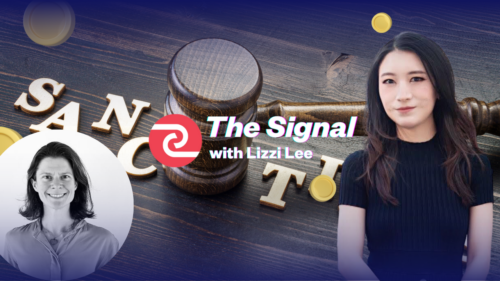The Significance of Xi Jinping’s Shake-Up in China’s Rocket Force Leadership | The Signal with Lizzi Lee
This week on Live with Lizzi Lee, Dr. Joel Wuthnow, a senior research fellow in the Center for the Study of Chinese Military Affairs within the Institute for National Strategic Studies at NDU, shares his thoughts on the significance of Xi Jinping's shake-up in China's rocket force leadership.
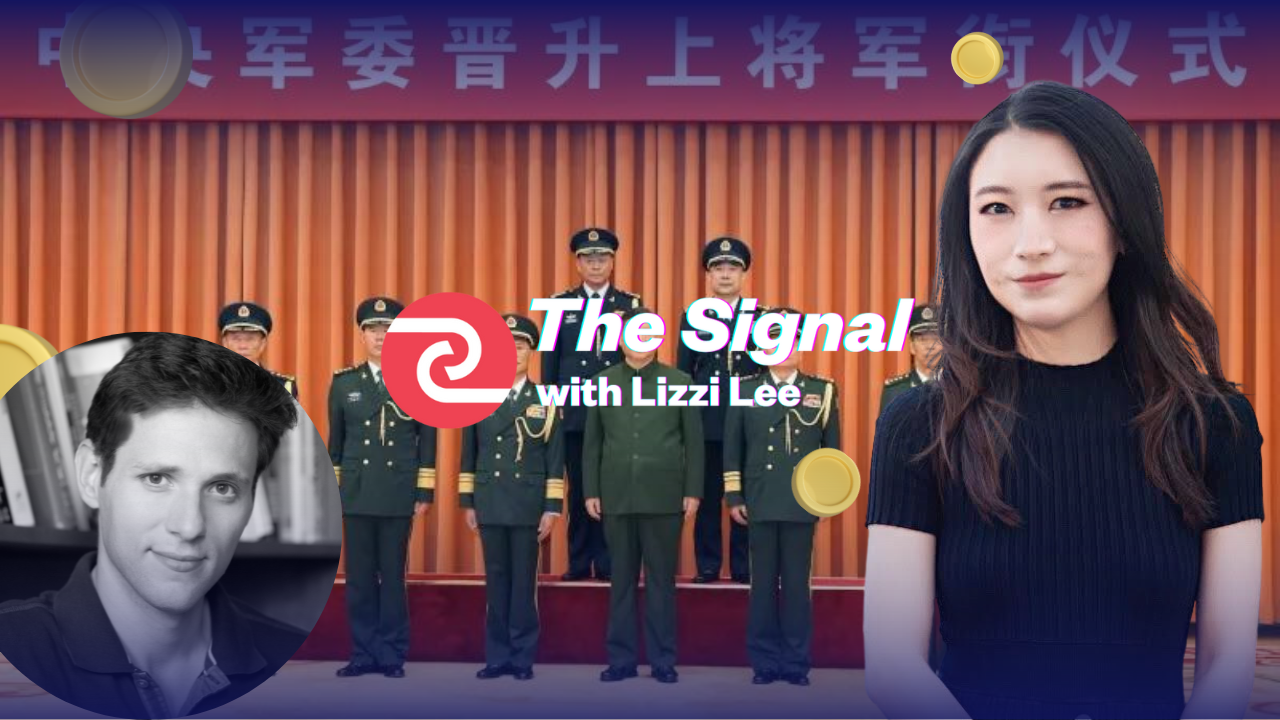
Below is a transcript of the video:
Lizzi: Hello and welcome to this episode of Live with Lizzi Lee powered by The China Project. I’m your host, Lizzi. Joining me today is Dr. Joel Wuthnow, a senior research fellow in the Center for the Study of Chinese Military Affairs within the Institute for National Strategic Studies at NDU. So, Dr. Joel Wuthnow, the recent shake-up in China’s rocket force, with the replacement of top commanders, has raised many questions about corruption and potential disloyalty within the force. How significant is this upheaval, and how might it impact China’s nuclear and conventional missile modernization efforts?
Wuthnow: Thanks, Lizzi. So this has been a very interesting week for the PLA where the commander of the rocket force, the political commissar of the rocket force, are gone and replaced by new people from different services. So this is a surprising, even a shocking, development because this isn’t really how things work in the play. Typically, the commander, the top leaders of a service, they come from that service. They’re people they’ve trained over many years and decades to take leadership. When you have top leaders who suddenly disappear and they’re replaced by people from different services with no experience in that service, then that tells you that something is very, very wrong.
What exactly is the problem? We don’t know. We don’t know why they’re gone and why now. It could be that this is a matter of corruption. It could be that this is a matter of disloyalty, that something else is going on behind the scenes. So it’s surprising. It’s a little bit unsettling, and it’s unclear exactly what is happening or how big the problem is inside the place. So what does this mean for their modernization? Well, it could complicate their modernization. So the rocket force is a service of the PLA that handles its nuclear force as well as its long-range land-based conventional missiles. It has been undergoing a dramatic and very large-scale expansion of these forces in recent years. If there’s a problem with the leadership, if it’s related to corruption, if it’s related to some mismanagement of the force, then that could signal that there are going to be problems with the expansion. But we don’t know. Again, there are more questions than answers at this point because of how little information the Chinese have released about this episode.
Lizzi: Right. So what do we know about the disgraced former commander Lǐ Yùchāo 李玉超? There’s a rumor going on on Chinese social media… there’s this speculation that it might be related to his son being compromised while studying in the United States. Is there any substance to that rumor?
Wuthnow: So, Li Yuchao was the commander of the rocket force. He took over back in January 2022. By way of background, he has a very conventional background for a rocket force commander. He joined the PLA more than 40 years ago. He was promoted to successive positions of authority within the rocket force. He was a base commander. He was the chief of staff. And then in January, he was promoted to commander. So his background is not unusual at all. And so that deepens the question about why he suddenly disappeared, someone with his pedigree and apparent competence. And we don’t know. The idea here is it’s broader than just him. I mean, they also got rid of the political commissar. And there are questions right now about the deputy commander, the deputy political commissar. So, in other words, the entire leadership of the rocket force is in question right now. So it doesn’t appear to be a question of just competence by one person. This seems to be broader. But whether this is a financial conspiracy or a case of someone or someone related to him selling secrets to another country, that’s a possibility. But it does seem to be some question of lack of confidence or a lack of trust by Xí Jìnpíng 习近平, by the Central Military Commission in the leadership, the entire leadership of the rocket force. And so this is something that makes this especially concerning.
Lizzi: As you briefly alluded to, one of the speculation surrounding the removal of these commanders is corruption, according to New York Times, “related to big spending on missiles, silos, and technology.” What are the challenges the Chinese government faces to root out corruption within the military and maintain loyalty within its armed force? I mean, Xi Jinping has been rooting out corruption in the military for the past several years, but apparently, it hasn’t solved the problem.
Wuthnow: So this is one of the surprising things is that they keep having to undertake these anti-corruption investigations. This is something that, as you mentioned, Xi Jinping really started. He expanded the anti-corruption investigations ten years ago and made many examples of senior people in the play who were notoriously corrupt.
And so the question – the surprising thing – is, after these ten years of experience, why would he still need to do this? It sort of indicates that he might not have been fully successful in dealing with corruption. And so when we’re looking at one person or a small group of people who may have been involved in financial corruption and certainly the rocket force, there is an opportunity because they are expanding. They’re doing a lot of construction. They’re buying a lot of things. And so there are opportunities for this. But if Xi Jinping has not been totally successful in eradicating this problem over a decade of intensive efforts. Well, how big is the problem? Why is the problem remaining?
I think one reason for this is that fundamentally the PLA is still really a self-policing organization. So Xi Jinping is the one civilian of any authority. But the PLA is responsible for policing its own affairs on the anti-corruption people, the military courts, and the political commissars. These people all wear uniforms. So if they are conspiring with each other or colluding with each other, there’s no court, there is no media, and there is no other system of checks and balances in the country to be able to control problems of corruption. And so this is, I think, a challenge that Xi Jinping has never fully or fundamentally addressed. It gets to the relationship between the party and the army, between the civilians and the military. And so while he’s made this a big priority of his, he hasn’t fundamentally changed that relationship. And so I think that’s why we still have these opportunities for corruption to continue.
Lizzi: Very insightful. Thank you. As you mentioned, the replacement for the top leadership of the rocket force came from the Navy and the Air Force. That’s kind of surprising to many observers. Will their lack of experience in the nuclear force affect the rocket force operations in strategic strategic directions?
Wuthnow: So let’s break it down between the commander and the political commissar. I’m assuming the new commander of the rocket force is an admiral from the Navy. And he has no background in nuclear policy or nuclear forces. The closest thing would be he was previously assigned to the South Sea fleet of the Navy, which does oversee the ballistic missile submarines. So he has some light connection to him, to the Navy nuclear force. But he has no experience with the rocket force. So he’s going to have a significant learning curve. He will need to understand how the rocket force is structured, what they do, how they operate, and what their doctrine is.
With the political commissar, however, the situation is different. So in the PLA, the political commissar’s responsibility is really about managing people. And he is the human resources. He is the voice of the party. So those skills are more transferable between the services, and, in fact, the officer who is the new political commissar replaced that previous officer from the Army. He did not spend his entire career in the rocket force. He was from outside, brought in. And the new political commissar, as you mentioned, is from the Air Force. So those skills are much more transferable. It’s less interesting, and the learning curve will be smaller for him. But for the commander, it’s virtually unprecedented that you would bring in someone from a different service because the learning curve is so high for those people.
Lizzi: Fascinating. As we talked about previously, China has significantly expanded its missile arsenal within the past few years with a growing number of nuclear weapons and ballistic missiles. How does this development impact the strategic balance in the Asia-Pacific region and affect the security dynamics between China, the United States, and other regional players?
Wuthnow: Well, I think from China’s point of view, rapidly increasing the nuclear forces and the ballistic missile forces is stabilizing from their point of view. What they perceive is a modernization of the US nuclear establishment. They see us as modernizing. They see that we have a new nuclear strategy. They see that we are rapidly increasing our ballistic missile defenses and so on. And so, from their point of view, they are just keeping pace with us. They need to do this to achieve balance and to prevent the United States from nuclear intimidation or nuclear coercion of China. I think this is very concerning from the perspective of other countries. Why suddenly have they felt the need to not modestly but dramatically increase their nuclear arsenal’s size and capabilities? Do they still have the same nuclear doctrine, which is “no first use”, or are they going to do what Russia has done and threaten to use of nuclear weapons on the battlefield in the future? And in fact, are the Chinese thinking that they can potentially employ nuclear weapons or nuclear threats in a future crisis, including a potential conflict across the Taiwan Strait, to try to deter the United States or U.S. allies like Japan or Australia through these nuclear signals or nuclear weapons? Is this what China is trying to do? So all of these things, I think, are very unsettling and very concerning for other observers.
